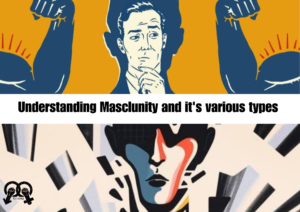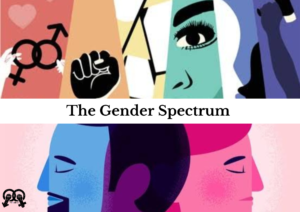If females perform according to their society defined roles and are violated, then they must be taught how to defend themselves but if females who know how to defend themselves are violated then that is blamed on them being too masculine to fit into the category of being an actual female, which nullifies the idea that they can in fact be subject to sexual violence.
So, what are we teaching our girls these days? Self-defence? In the rulebook of how to keep our girls safe, teaching them self-defence comes in the top 3 measures I’m sure. However, which justification will we put forward, when even the strongest of female bodies aren’t safe?


Such incidents compel us to reflect on how differently-sexed bodies can occupy the same social and political spaces. From a political viewpoint, physical strength has often been equated with safety and security. This is evident in the rhetoric used by political leaders, who frequently emphasise the importance of having a strong military, police force, or border security to protect their countries. However, the notion that physical strength is the key to safety is a flawed one, and it obscures the many ways in which bodies are implicated in politics.
There is a generic notion that men’s bodies are naturally stronger than women’s bodies due to how they have evolved historically. However, research shows that an average male is only 10-15% physically stronger than a woman in a ‘natural’ sense, without having undergone physical exercise. Now, if we are to talk about women’s bodies that are involved in sports, their bodies are equivalent, rather more strong in a physical sense, than an average man’s body who is not involved in physical activity, from about 40-50% increase in the percentage of strength. But, these statistics don’t hold any value as women in sports are still at risk of being subjected to sexual harassment, despite being strong enough to defend themselves.
This makes me question, is sexual misconduct, where women’s bodies are primary subjects, really a matter of their ability to be able to defend themselves or about how strong they are to have possibly stopped or avoided that attack.
Not all bodies are equally valued in politics. More often than not, men’s bodies are valued more highly than women’s, and certain bodies are deemed “abnormal” or “deviant” because they do not conform to societal norms around gender, race, or sexuality. This can lead to discrimination and marginalisation, as those with non-normative bodies are often excluded from political power and decision-making, which mostly results in those “abnormal” bodies being prone to violence across all intersections, almost as a punishment for not conforming to the norm. The perpetrators of this violence have a psyche which reads this kind of misbehaviour as a solution to throw these women back into the normative way of being a woman by being made to feel like one. You may want to read that again, it’s a slightly complicated idea, and a highly problematic one too. Nevertheless, it is very predominantly present in the reality we are living in every day.
When it comes to women’s bodies, they have been subjected to scrutiny and regulation throughout history, with their reproductive choices, clothing, and behaviour largely dictated by patriarchal norms. In some countries, women are not allowed to drive or hold political office and are required to cover their bodies in public spaces. These restrictions not only limit women’s opportunities for political participation but also reinforce harmful gender norms and stereotypes. This discrimination has led to some detrimental impacts on the notions of women and femininity. Political and social spaces demand a very ideal feminine image of women to be out there in public, they demand women to fit into their archetypal notions of femininity like being gentle and not resisting.
These problematic notions of femininity are what lead women’s bodies to frequently become the targets of sexual violence, both in times of peace and during conflict and the idea that physical strength equates to safety ignores the many ways in which bodies are vulnerable to harm and violence. Mostly, the women are blamed for being subjected to such violence and are asked to ‘cover up’ or simply ‘bear it’ because the men won’t change and being molested is a mark of shame to your essence of being a woman.
In the case of our wrestlers, we can see that these women are being unheard not because they weren’t strong enough, but because they are not fitting into the notions of femininity which are by default expected out of females by the virtue of them being born as female in this patriarchal society. If females perform according to their society defined roles and are violated, then they must be taught how to defend themselves but if females who know how to defend themselves are violated then that is blamed on them being too masculine to fit into the category of being an actual female, which nullifies the idea that they can in fact be subject to sexual violence.
This ideology is so deep-rooted that by the time we sit down to unfold it, it will be too late and every woman’s voice which is gathering the courage & struggling to speak about the violence they have experienced will yet again be silenced and justice won’t prevail.
In conclusion, the idea that physical strength equates to safety is a flawed one that obscures the many ways in which bodies are implicated in political and social spaces. Rather than prioritizing strength and security, we should work towards creating more inclusive and equitable political systems that value and protect all bodies, regardless of their size, shape, or ability. This can involve promoting diversity and representation in politics, addressing systemic inequalities and discrimination, and prioritising non-violent approaches to conflict resolution along with approaching cases of sexual misconduct with an open mind, more sensitivity and acceptance.
References
- Gatens, M. (1996). Imaginary Bodies: Ethics, Power and Corporeality. Routledge.
- Roth, A., & Basow, S. A. (2004). Femininity, Sports, and Feminism: Developing a Theory of Physical Liberation. Journal of Sport and Social Issue, (28), 22. 10.1177/0193723504266990
- Sexual Harassment in Sports in India. (2022, July 8). Ungender. Retrieved May 13, 2023, from https://www.ungender.in/sexual-harassment-in-sports-in
Gayatri is a twenty-one-year-old passionate musician. She loves the winter, coffee & the moon. Other than this she also likes to travel and create videos for her youtube channel. She’s currently pursuing Gender Studies at Ambedkar University, Delhi and through her writings at Mandonna she aims to contribute to promoting more conversation around gender.





